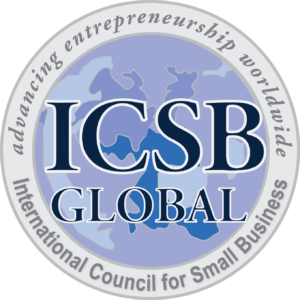Workers were affixing small black-and-white signs to the stone patio outside Zaytinya on Tuesday morning, each one exactly six feet from the next. The signs indicated where customers for one of ThinkFoodGroup’s new community kitchens should stand while waiting for meals outside a restaurant that would be, under normal circumstances, packed with lunchtime diners.
But Zaytinya was closed, one of hundreds of restaurants and bars across the city affected by the D.C. government’s order on Monday to stop all dine-in service. The clampdown is part of a growing movement to curtail public gatherings and “flatten the curve,” the popular shorthand for limiting the spread of coronavirus by dramatically cutting back on social interactions. As the virus has spread, public officials have steadily lowered their recommended numbers for public gatherings: first 1,000, then 250, then 50 and now 10.
José Andrés understands the importance of these recommendations. They can save lives. But he also understands people need to be fed, especially those households that have relied on (now closed) public schools to feed their children or don’t have the means to stockpile their pantries for weeks on end, as the coronavirus strangles a service industry that employs millions of hourly American workers. So Andrés, the face of ThinkFoodGroup and the man who leads a small army of chefs and volunteers in humanitarian efforts around the globe, has decided to forge ahead and do what he always does: Feed the people.
ThinkFoodGroup’s community kitchens are the chef and restaurateur’s latest efforts to keep the food flowing. He and the ThinkFoodGroup team are mobilizing the otherwise-dormant kitchens at Zaytinya, America Eats Tavern, Oyamel and several locations of Jaleo and using them to serve the public a rotating menu of soups, salads, entrees and more from noon to 5 p.m. daily. Andrés is doing this despite critics who say any public gathering, no matter how noble, can contribute to the spread of coronavirus.
“People have to eat,” Andrés said at a news preview of the community kitchens. “Not everybody is going to be able to go to the supermarket. We have areas in America that are food deserts. We have millions of Americans that, if you go to their kitchens, their kitchens are empty. Not everybody has money to fill up for a month. That’s the reality. What are we going to do?”
The food from these community kitchens is not free. The prices range, for example, from $6 for pork-and-hominy soup at Oyamel to $12 for a plate of hanger steak and fried potatoes at Jaleo in Crystal City. But a spokesperson for ThinkFoodGroup said anyone who can’t afford a meal will be given one free; the public can also purchase meals to be donated to others.
In this way, the community kitchens are a ThinkFoodGroup project —staffed with salaried employees who volunteer for the gig — but one steeped in the spirit of Andrés’s other work with World Central Kitchen, his relief nonprofit that feeds people in times of disaster, whether natural or political. World Central Kitchen’s efforts around the world — in Puerto Rico, in the Bahamas, even in Washington during the partial government shutdown — has put Andrés in a unique position to know how to serve food under trying circumstances.
“World Central Kitchen has proven, every time, that we can adapt to every circumstance, from fires to volcanoes to political situations to earthquakes to typhoons to tsunamis to places where that there is nothing left, like the Bahamas,” Andrés said.
Yet the coronavirus presents a different set of challenges, the chef noted. Because of the way the virus spreads, you can’t mobilize relief efforts as you would in disaster zones. You can’t have a line of 200 people making sandwiches ready to pass out to another line of hungry people, each group crowded together in a tight space. Feeding operations have to be small, targeted and operated in a way to keep both workers and the public safe. Independent restaurants are an ideal outlet for this approach, Andrés said. With a small menu and limited hours, they can be run with only a handful of people, and they can organize the line in a way to make sure there is six feet between each person in it. The signs on the ground at Zaytinya are evidence to it.
If the coronavirus gets worse, and parts of the country are forced to go on lockdown, restaurant operations like these could feed a city, Andrés said. “I’ve made it very clear that what I’m doing here is the blueprint for what maybe will have to happen if things get very bad,” he said.
The truth is, Andrés and his two primary workplaces, ThinkFoodGroup and World Central Kitchen, are preparing for the worst. World Central Kitchen is already feeding people in Arkansas and the Bronx, with plans to open sites in Washington. The nonprofit organization is even looking at large-scale operations, perhaps taking over a convention center or stadium and staffing it with chefs who pass a coronavirus test. The chefs would remain on site for a month, with no contact with the outside world, and cook for teams to distribute.
“We need to prepare for the worst and hope for the best,” Andrés said.
Make no mistake, though. Andrés thinks the worst is yet to come. During his news event, he borrowed an ominous phrase from “Game of Thrones,” one of his favorite TV series.
“Tell people ‘winter is coming,’ and we need to be ready for winter,” he said. “If at the end, spring shows up and winter goes away, I’m very happy. But I’m sorry, winter is coming, and what I’m trying to do is make sure that we’re ready to confront that situation.”
Contributed by Tim Carmen, Washington Post


